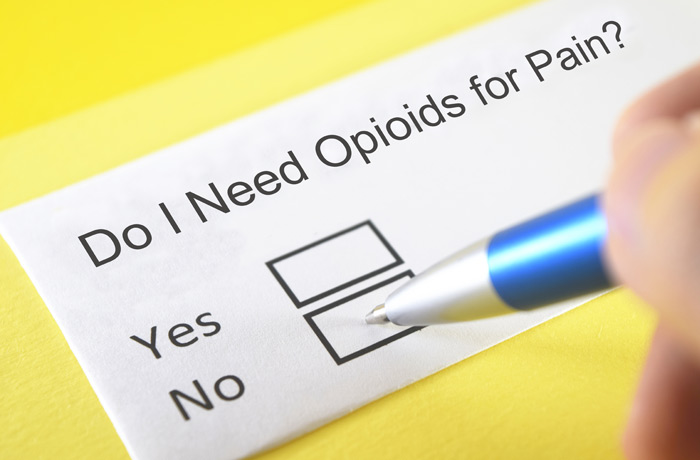
It’s estimated that 100 million Americans struggle with pain symptoms daily, and chronic pain is the nation’s leading cause of long-term disability.
Pain isn’t something that’s “all in people’s heads” or just an easy route to collecting disability. It’s a very real and disruptive medical issue—one that’s been further complicated by the over-prescribing of opioids. Sometimes, however, opioids can do more harm than good. Certain patients may experience worsening of pain and function, and subsequently become dependent or addicted.
So what can chronic pain sufferers do to cope, without resorting to opioids? Dr. Ann Monroe, pain management specialist with Holland Hospital Pain Management, offers some strategies and advice to consider:
OTC Medicines
Sometimes medically prescribed in higher doses, non-steroidal anti-inflammatory drugs (NSAIDs) are also available over the counter (OTC) in most grocery stores and pharmacies. NSAIDs like ibuprofen (Advil), aspirin and naproxen sodium (Aleve) reduce pain and inflammation. While NSAIDs can be very effective, they aren’t recommended for individuals with kidney disease.
Acetaminophen (Tylenol) is another OTC option for relieving pain; however, misusing or taking too much of this medication may cause liver damage.
Topical Drugs
Topical analgesics (drugs) applied directly to the skin in gel, spray or cream form can be beneficial for alleviating acute pain. Some topical analgesics contain NSAIDs, while others contain menthol, camphor, capsaicin or trolamine salicylate. Cooling or heating effects of these compounds may bring relief to the affected area.
Muscle Relaxers & Nerve Blocks
For those who have conditions generating muscle spasms or cramps, muscle relaxers can be an alternative to opioids. Diazepam (Valium) may be helpful, but also has side effects and carries the risk of addiction.
Physicians are increasingly using therapeutic nerve blocks, delivered as an injection to the specific area of the body, to numb the pain response. Highly effective for localized pain, nerve blocks aren’t as useful for more widespread pain conditions.
Non-Drug Treatments
Some non-drug treatment strategies for chronic pain management include:
- Physical therapy
- Acupuncture
- Massage
- Cognitive behavioral counseling (or general mental health counseling)
Self-Care Techniques
Practicing good self-care is a critical to managing pain:
- Deep breathing and meditation can help you relax.
- Keep stress at bay, as it can intensify your pain.
- Get regular exercise—it boosts natural, “feel-good” hormones (endorphins).
- Enjoy a healthy, well-balanced diet that includes plenty of fruits and vegetables, whole grains, low-fat dairy products, and lean meats.
- Cut back on alcohol consumption and don’t smoke.
- Maintain good posture when sitting, standing and performing activities of daily living.
- Sleep well.
- Join a support group to meet and share with others who understand what you’re going through.
In the “real world” of pain management, a combination of therapies is often the best approach. Most importantly, if you’re experiencing persistent pain, don’t give up hope. Seek help from those you love, along with treatment and guidance from a medical specialist in pain management.